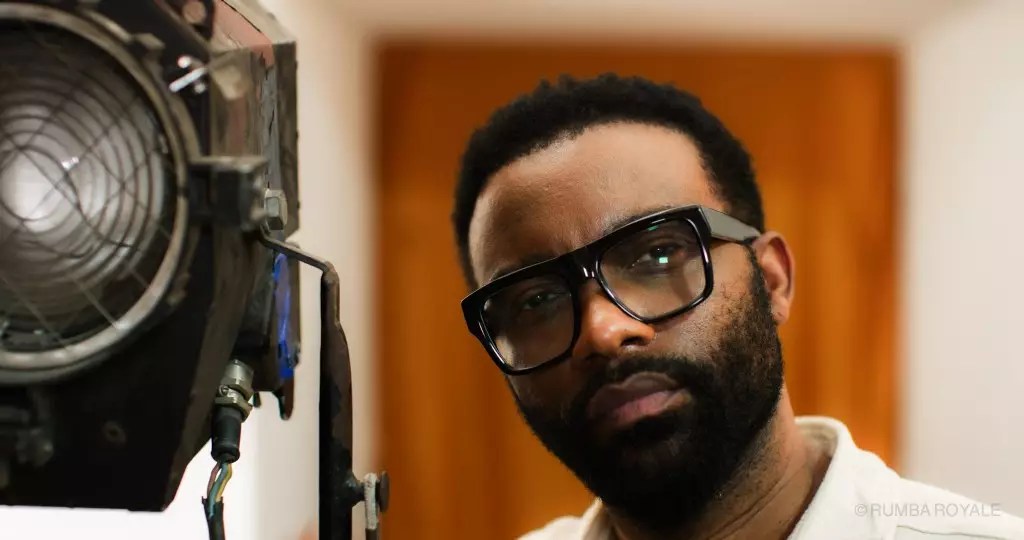In an industry often overshadowed by Western cinematic norms, the release of “Rumba Royale,” featuring Congolese music sensation Fally Ipupa, stands as a significant milestone. This historical thriller is not merely another film; it’s a cultural event that marks Ipupa’s triumphant entry into the world of film. Known affectionately by fans as the “Prince of Rumba,” his transition from music to acting represents a fascinating evolution in the portrayal of African narratives on a global stage. Unlike many pop stars who’ve attempted the same leap without success, Ipupa brings a unique blend of charisma and cultural resonance that promises to capture the audience’s heart, resonating particularly with the Congolese diaspora and beyond.
A Vision Rooted in Authenticity
Directors Yohane Dean Lengol and Hamed Mobasser have crafted “Rumba Royale” as an intricate tapestry interwoven with the rich history of the Democratic Republic of Congo. The film does not merely seek to dramatize events; it aims to offer a lens into a pivotal moment of change, as the nation wades through the waters of independence from colonial rule. This backdrop heightens the stakes for the characters, allowing the audience to engage with the political struggles alongside the narrative’s personal dramas.
The decision to embed Congolese rumba music into the film is more than a stylistic choice; it’s a declaration of cultural pride. Through this marriage of history and music, Lengol and Mobasser have created a cinematic love letter to their homeland. It’s a strategic yet passionate act aimed at not just appealing to local audiences but also drawing in a larger, cosmopolitan crowd eager for authentic African stories.
Pathé Touch Afrique’s Ambitious Strategy
The acquisition of pan-African rights by Pathé Touch Afrique signals a bold strategy following its rebranding and the arrival of Sébastien Onomo. This isn’t just about local distribution; it marks a movement towards reclaiming agency in African cinema. By proactively reaching out to both French and English-speaking territories, Pathé aims to strengthen the narrative framework in which African stories can be told. The ambition is commendable, especially in a market that often relegates African films to niche categories.
However, one must remain cautiously optimistic. There remains a significant gap between ambition and execution, as the reception of African films in international markets has often hinged on factors beyond mere storytelling. It takes careful marketing, cultural sensitivity, and, most importantly, an understanding of the diverse viewing preferences across the continent. Pathé’s intentions are laudable, but only time will tell if “Rumba Royale” breaks the molds established by its predecessors.
A New Era of Representation
“Rumba Royale” positions itself as a transformative piece in the landscape of African cinema. The narrative, highlighted by its exploration of identity and resistance, is universal yet distinctly local. This dichotomy enhances its relatability, allowing audiences across different cultures to find common ground while retaining a unique Congolese flavor. Such representation is not merely desirable; it is essential for the evolution of African cinema.
Fally Ipupa’s enthusiasm about the film reflects a confidence that transcends personal fame; it embodies the collective aspiration for African stories to not only reach but resonate on a global platform. This shift could lay groundwork for future films that embrace the rich tapestries of Africa, encouraging diverse narratives that reflect both struggles and triumphs.
The Risks and Rewards of Cross-Continental Ambitions
While the forecast for “Rumba Royale” shines brightly, one must be wary of the potential overreach in its ambitions. The film’s success depends not just on its artistic merit but also on its ability to navigate the treacherous waters of cultural translation. Efforts to appeal to Western audiences while remaining true to Congolese roots may exaggerate the film’s message or dilute its authenticity. This delicate balancing act could become its undoing if audience expectations are mismanaged or if the filmmakers lose touch with the very emotions they seek to evoke.
Nevertheless, the confluence of such passionate production efforts with a culturally rich story and a star of Ipupa’s caliber offers the hope that “Rumba Royale” will ignite a renaissance in Pan-African cinema. If it succeeds, we may witness a renaissance that not only elevates Congolese cinema but also prompts a global reevaluation of African storytelling, paving the way for authentic voices to take center stage.


Leave a Reply